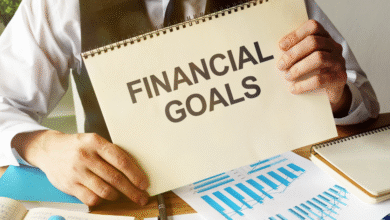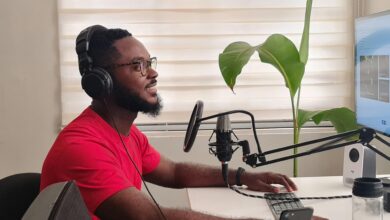12 Proven Tips To Practice Financial Self-Care
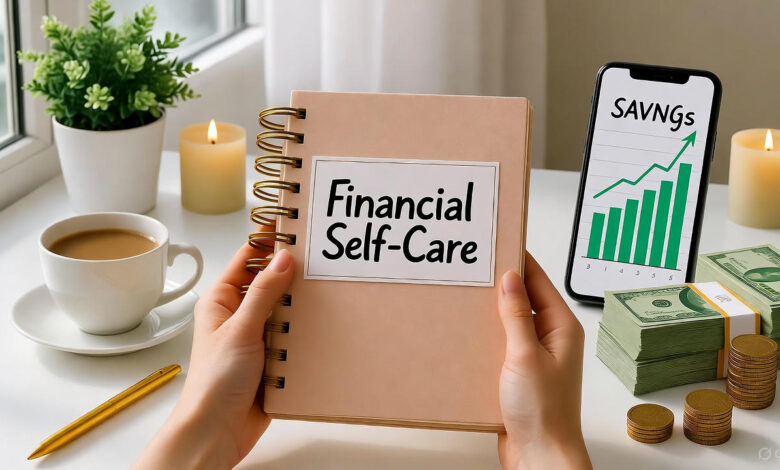
Look, I’m going to be straight with you, most people spend more time scrolling through their ex’s social media than checking their bank balance. Weird flex, right? But here’s the thing: your financial health needs attention just like your physical health does.
Maybe even more so, because while a broken bone heals in weeks, a broken budget can haunt you for years.
I remember sitting at my kitchen table one Sunday afternoon, staring at three credit card statements and wondering how I’d become that person. You know, the one who avoids opening mail because ignorance feels safer than reality. That was my wake-up call.
Financial self-care isn’t some trendy buzzword; it’s about building a relationship with money that doesn’t make you want to hide under your covers.
Here’s what we’re going to tackle together: practical, no-BS strategies that actually work. No magic formulas or get-rich-quick schemes. Just real talk about managing your money so you can sleep better at night and stop feeling that pit in your stomach every time your phone buzzes with a payment notification.
What Is Financial Self-Care?
Financial self-care is basically treating your money with the same respect you’d give your best friend. It’s about creating habits that protect your future self from the impulsive decisions your present self wants to make.
Think of it as building a safety net, except this one catches you before you fall into the “living paycheck to paycheck” trap.
At its core, it’s about being intentional. Every dollar you earn should have a purpose, whether that’s paying rent, building savings, or yes, even buying that coffee you love.
The difference between random spending and financial self-care? Planning and awareness. You’re not depriving yourself; you’re making conscious choices that align with where you want to be in five, ten, or twenty years.
How Do You Take Care Of Yourself Financially?
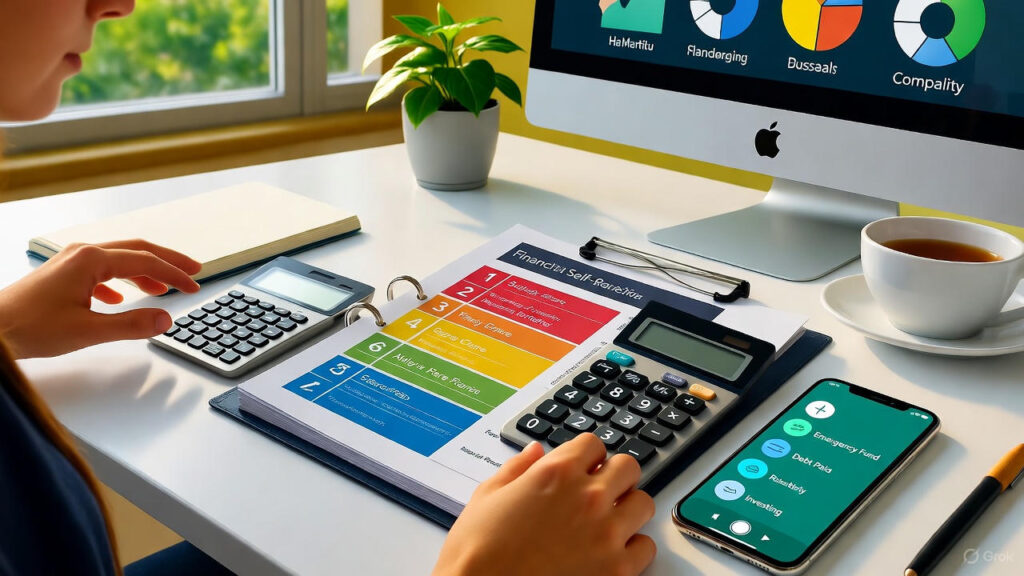
Taking care of yourself financially isn’t rocket science, but it does require consistency. It’s the small daily decisions that compound over time. Are you tracking where your money goes? Do you have a cushion for when life throws you a curveball? Can you afford to invest in opportunities when they show up?
The practical side includes things like automating your savings, negotiating better rates on your subscriptions, and understanding your spending patterns. But there’s also a psychological component, changing how you think about money, ditching the guilt around past mistakes, and building confidence in your financial decisions.
When I finally got serious about this, I started treating my financial health like training for a marathon. You don’t run 26 miles on day one. You build stamina gradually, celebrate small wins, and adjust your strategy when something isn’t working.
Benefits Of Financial Self-Care
Let me tell you why this matters beyond just having a bigger number in your savings account.
Financial Self-Care Allows You To Plan For The Future
Ever notice how retirement feels like this abstract concept when you’re in your twenties or thirties? I used to think I had “plenty of time” to figure that out. Spoiler alert: time moves faster than you think, and compound interest works best when you give it decades to do its thing.
When you practice financial self-care, retirement planning stops being scary and starts being exciting. You’re not scrambling at 55 trying to figure out how you’ll afford to stop working. Instead, you’re watching your investments grow, adjusting your strategy, and maybe even planning early retirement (dream big, right?).
Planning for the future also means being ready for the big stuff, buying a home, starting a business, or taking that sabbatical you’ve always wanted. Financial self-care gives you options instead of leaving you at the mercy of circumstances.
Financial Self-Care Reduces Financial Stress
Financial stress is a special kind of torture. It’s that 3 AM wake-up, wondering how you’ll cover next month’s rent. It’s declining dinner invitations because your account balance is embarrassing. It’s the constant background anxiety that makes everything else harder.
Here’s what I’ve learned: financial stress doesn’t magically disappear when you make more money. I know people earning six figures who still live in financial chaos because they never addressed the underlying habits. Conversely, I’ve met folks with modest incomes who sleep soundly because they’ve mastered the basics.
Reducing financial stress comes from having systems in place. An emergency fund means car repairs don’t trigger a panic attack. A budget means you know exactly what you can afford without guilt. Paying off debt means those collection calls stop haunting you.
Financial Self-Care Makes It Possible To Offer Support
One of the most underrated benefits? The freedom to be generous. When your finances are stable, you can help family members in crisis, donate to causes you believe in, or invest in your community without second-guessing.
I’ll never forget the first time I could loan money to a friend without mentally calculating whether it would bounce my rent check. That shift, from scarcity to abundance, changes how you move through the world. You’re no longer just surviving; you’re contributing.
Being financially stable doesn’t mean being rich. It means having enough margin to show up for others when it matters.
Financial Self-Care Improves Mental Health
Your mental health and financial health are more connected than you might realise. Financial instability triggers stress responses in your brain similar to physical danger. Your body literally thinks you’re being chased by a predator when you can’t pay your bills.
Improving your financial situation directly impacts your mental well-being. You sleep better. You have more energy. Your relationships improve because you’re not constantly stressed about money. You can focus on your work, your hobbies, and your relationships instead of obsessing over your bank balance.
I noticed my anxiety levels dropped significantly once I built a three-month emergency fund. It was like someone turned down the volume on my internal panic alarm. Turns out, financial security is a pretty powerful anxiety medication.
New And Better Financial Opportunities

Here’s something nobody tells you: opportunities often require capital. That dream job might require you to work unpaid for a few months. That perfect investment property might need immediate cash. That business idea? It needs seed money.
When you practice financial self-care, you’re positioning yourself to say yes when opportunities knock. I missed out on investing in a startup with friends because I had zero savings and maxed-out credit cards.
Watching them succeed while I sat on the sidelines was brutal. That pain motivated me to never be financially unprepared again.
Building financial stability isn’t just about avoiding disasters; it’s about being ready when good things happen.
12 Ways To Practice Financial Self-Care
Alright, let’s get into the practical stuff. These aren’t theoretical ideas; they’re strategies I’ve personally tested and refined over years of trial and error (emphasis on error, trust me).
1. Start Talking About It
Money is one of those taboo topics we’re supposed to politely avoid, right? Wrong. That silence is killing your financial health. When you don’t talk about money, you can’t learn from others’ mistakes or celebrate wins together.
Find your money buddy, someone you trust who’s also working on their finances. Schedule regular check-ins where you share goals, obstacles, and strategies. You’ll be amazed at how much faster you progress when you’re accountable to someone besides yourself.
I started a monthly “money brunch” with three friends where we openly discuss our financial wins and struggles. No judgment, just support and practical advice. One friend taught me about tax-advantaged accounts I didn’t know existed.
Another showed me how to negotiate medical bills. These conversations have literally saved me thousands of dollars.
FYI, talking about money also helps break down the shame and secrecy that keep people stuck in bad financial patterns. Debt thrives in silence.
2. Create Self-Motivating Goals
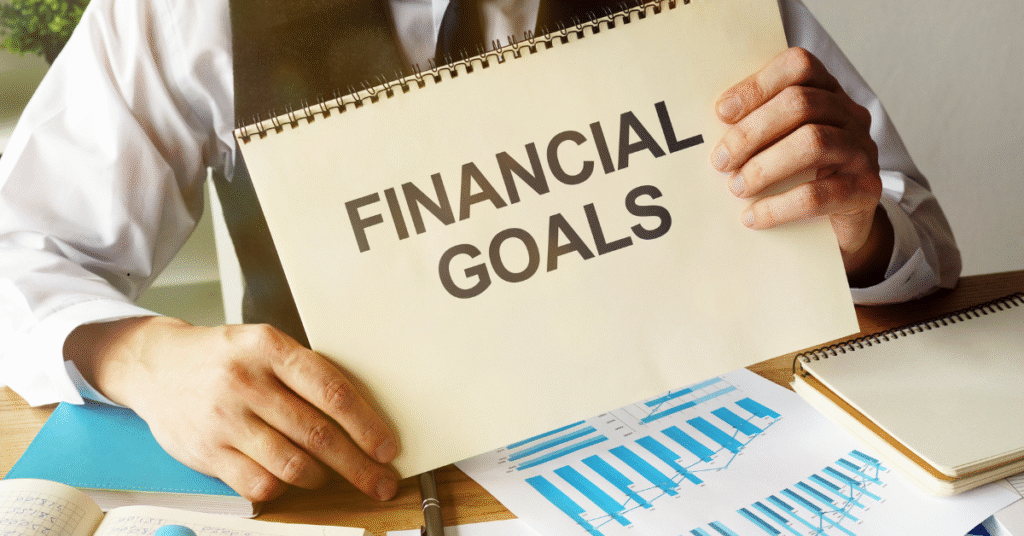
Generic goals like “save more money” or “spend less” are about as effective as New Year’s resolutions in February. You need specific, emotionally-charged goals that make you want to get out of bed and hustle.
Maybe it’s buying a house in three years. Perhaps it’s quitting your soul-crushing job in 18 months. Or travelling to Japan for a month without checking your bank account every day. Whatever it is, attach your financial habits to something you actually care about.
I taped a picture of my dream destination, Iceland, to my bathroom mirror. Every time I considered an impulse purchase, I’d see that photo and think, “Do I want this random thing, or do I want to see the Northern Lights?” Turns out, Iceland won every single time.
3. Monitor Your Daily Income And Expenses
You cannot manage what you don’t measure. Period. I know tracking expenses sounds tedious (because it kind of is), but it’s also the most powerful diagnostic tool you have.
For one month, track every single penny. Coffee? Write it down. Parking? Track it. That random $2.99 app subscription you forgot about? Definitely track it. You’ll discover shocking patterns, like how those “small” purchases add up to hundreds monthly, or how much you’re actually spending on food delivery.
I use apps like Mint or YNAB to automate this process, but even a simple spreadsheet works. The goal isn’t to judge yourself; it’s to gather data so you can make informed decisions.
Pro tip: Check your spending weekly, not monthly. Weekly reviews keep you connected to your habits without feeling overwhelmed.
4. Build A Realistic Budget
Budgets get a bad rap because most people build them wrong. They create these restrictive, joyless spreadsheets that assume they’ll suddenly transform into a completely different person who never wants anything fun ever again.
Here’s the secret: your budget should reflect your actual life, not some idealised version of who you think you should be. If you love concerts, budget for concerts. If takeout keeps you sane after long workdays, include it. The budget isn’t about deprivation, it’s about intentionality.
Start with your fixed costs (rent, utilities, insurance, debt payments). Then allocate for variable necessities (groceries, gas, phone). Finally, and this is crucial, budget for discretionary spending. Permit yourself to enjoy life within reasonable limits.
I follow the 50/30/20 rule as a rough framework: 50% for needs, 30% for wants, 20% for savings and debt repayment. But I’ve tweaked it for my situation, and you should too.
5. Set Up An Emergency Fund
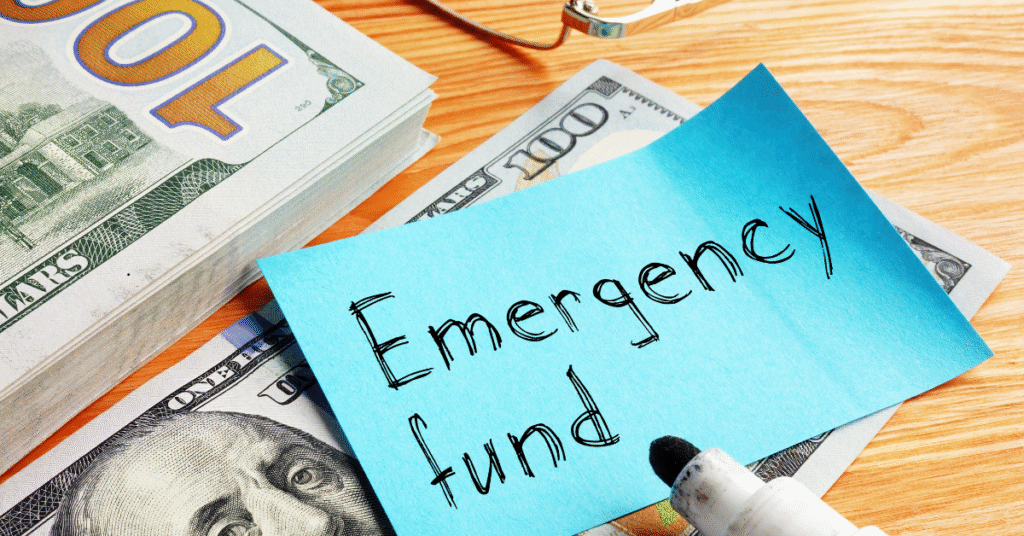
An emergency fund is your financial security blanket. It’s what stands between you and complete disaster when your car breaks down, you lose your job, or your tooth decides to crack on a Friday night.
Start small; even $500 can prevent you from going into debt for minor emergencies. Then work toward saving three to six months of essential expenses. Keep this money in a high-yield savings account where it’s accessible but not so convenient that you’re tempted to raid it for non-emergencies.
Building my emergency fund was honestly life-changing. Knowing I could handle unexpected expenses without panic fundamentally changed my stress levels. Car repair bill? Annoying, but not catastrophic. Unexpected medical expense? Covered. The peace of mind is worth every sacrifice I made to build that cushion.
6. Borrow Wisely
Debt isn’t inherently evil, but it’s incredibly easy to misuse. The question isn’t whether you should ever borrow; it’s about borrowing strategically for things that appreciate or significantly improve your life.
Good debt: mortgages on homes that build equity, student loans for education that increase earning potential, business loans that generate ROI.
Bad debt: credit cards for routine expenses you can’t afford, car loans for vehicles beyond your means, payday loans (seriously, avoid these like the plague).
Before taking on any debt, ask yourself: Will this improve my financial position long-term, or am I just kicking the problem down the road? Sometimes the answer means making uncomfortable choices, like keeping your current car longer or skipping that upgrade.
When I was drowning in credit card debt, I finally got real with myself. I couldn’t keep borrowing from tomorrow to fund today’s whims. Now I use credit cards strategically for rewards and pay them off monthly. The shift from being controlled by debt to controlling my credit was empowering.
7. Invest In Your Future
Investing isn’t just for wealthy people in suits yelling on trading floors. It’s for anyone who wants their money to work for them instead of sitting in a checking account losing value to inflation.
Start with your employer’s 401(k) if they offer one, especially if they match contributions; that’s literally free money. Then consider opening a Roth IRA for tax-free growth. Can’t afford much? Even $50 monthly makes a difference over decades thanks to compound interest.
The investment world can feel intimidating with all its jargon and options, but you don’t need to be an expert. Low-cost index funds through platforms like Vanguard or Fidelity offer diversification without requiring you to pick individual stocks.
I wish someone had explained compound interest to me when I was 22. Starting early, even with tiny amounts, beats starting later with larger sums. Time is your biggest advantage.
8. Create And Grow Assets
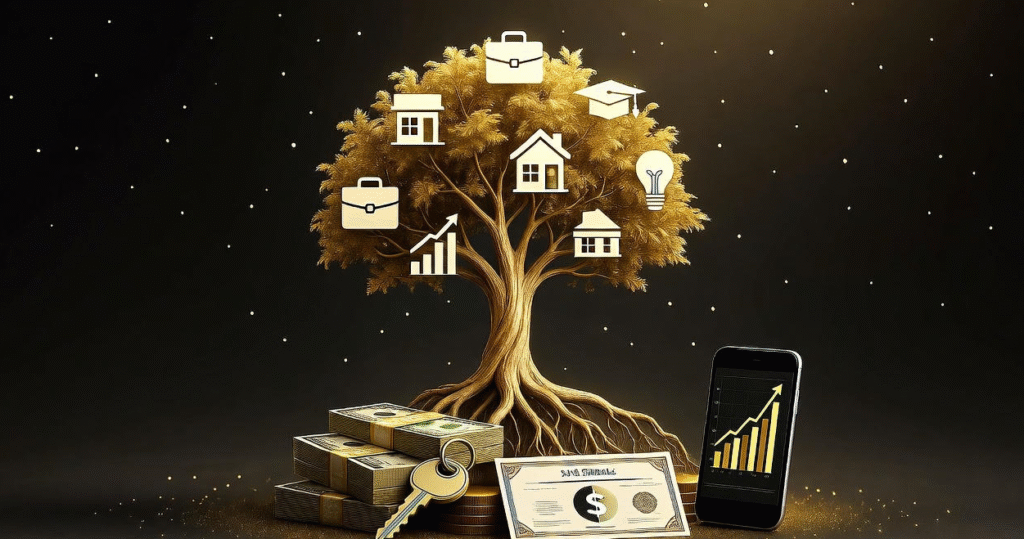
Assets are things that put money in your pocket. Liabilities take money out. Simple, right? Yet most people spend their lives accumulating liabilities while wondering why they’re not building wealth.
Assets can include:
- Rental properties that generate monthly income
- Dividend-paying stocks that provide passive cash flow
- Side businesses that grow beyond your direct time input
- Intellectual property, like courses, books, or digital products
- High-yield savings accounts and CDs
You don’t need massive capital to start. I began with peer-to-peer lending through LendingClub with just $500. As that grew, I reinvested profits and eventually had enough to invest in a rental property with partners.
The key is starting somewhere and consistently reinvesting your returns. Assets compound just like debt does, except in your favour.
9. Spend Wisely
Spending wisely doesn’t mean being cheap; it means being strategic. It’s about maximising value and eliminating waste, not about denying yourself everything enjoyable.
Before any significant purchase, I ask three questions:
- Will I still care about this in a month? (Eliminates impulse buys)
- Does this align with my goals? (Keeps me focused)
- Can I genuinely afford this without stress? (Prevents debt)
I also practice the 48-hour rule for unplanned purchases over $50. If I still want it after two days, I’ll reconsider. You’d be shocked how often the urgency fades once you step away.
Smart spending also means shopping around, using coupons without shame, buying quality over quantity, and questioning subscriptions. Do you actually use that gym membership, streaming service, or premium app? IMO, most of us are haemorrhaging money on subscriptions we’ve forgotten about.
10. Make Extra Debt Payments
If you have debt, paying more than the minimum is one of the fastest ways to reclaim your financial freedom. Even an extra $50 monthly can shave years off your repayment timeline and save thousands in interest.
Use the debt avalanche method (targeting the highest interest rates first) or the debt snowball method (paying off the smallest balances first for psychological wins). Both work; pick whichever keeps you motivated.
When I was paying off my credit cards, I treated extra payments like a game. Any bonus money, tax refunds, birthday cash, or side hustle earnings went straight to debt. Watching those balances shrink became addictive in the best way.
Being debt-free feels like removing a weight you didn’t realise you were carrying. Suddenly, you’re not working to pay for your past, you’re earning for your future.
11. Minimise or Stop The Use Of Credit Cards
Credit cards are financial tools, not extensions of your income. The problem? They make spending feel painless until the bill arrives and reality hits hard.
If you can’t pay off your balance monthly, stop using credit cards. Switch to debit or cash until you’ve developed better spending habits. It’s uncomfortable at first; you’ll actually feel money leaving your account, but that discomfort is the point. It creates natural spending limits.
I cut up all but one credit card and kept that one frozen in a block of ice (yes, literally). If I needed it for a true emergency, I’d have time to think while it thawed. Extreme? Maybe. Effective? Absolutely.
Once you’ve mastered your spending, you can strategically use cards for rewards and cashback, but only if you pay them off religiously.
12. Make More Money
Let’s be real: you can only cut expenses so far. At some point, you need to increase your income to make significant financial progress.
This doesn’t necessarily mean working 80-hour weeks. It might mean:
- Negotiating a raise at your current job (most people never even ask)
- Starting a side hustle based on your skills or hobbies
- Freelancing in your field for extra projects
- Monetising a hobby through platforms like Etsy or Fiverr
- Investing in education that qualifies you for higher-paying roles
I doubled my income over three years by combining a strategic job switch with freelance writing on the side. The side income started at maybe $200 monthly but grew as I built my reputation. That “extra” money fast-tracked my debt payoff and emergency fund.
More income only helps if you don’t inflate your lifestyle proportionally (hello, lifestyle creep). Channel raises and bonuses toward your financial goals before your brain adjusts to the new normal.
Final Thoughts
Financial self-care isn’t about perfection; it’s about progress. Some months you’ll feel like a genius, other months like a mess, and that’s okay. What matters is that you keep moving forward.
Ask yourself: Is your trajectory improving? Are you learning instead of repeating mistakes? Be kind to your past, but committed to your future.
Start anywhere, budget app, opening statements, one tiny habit. If you slip, reset tomorrow. Financial freedom is built step by step… and you’ve got this.





